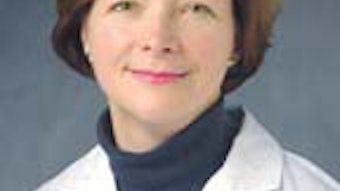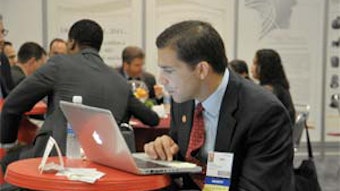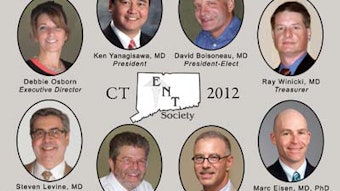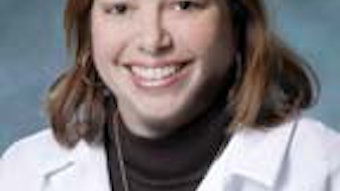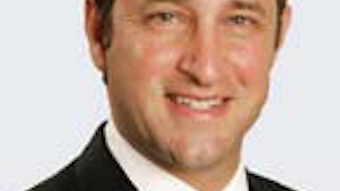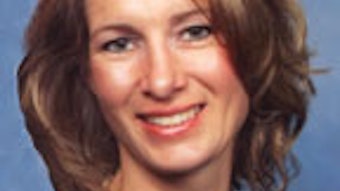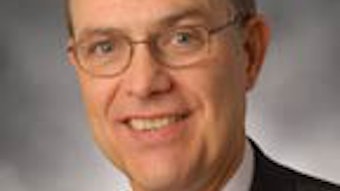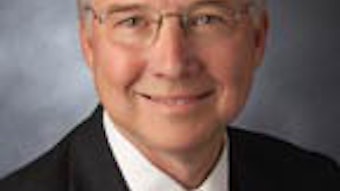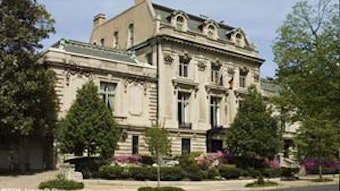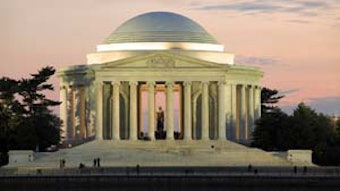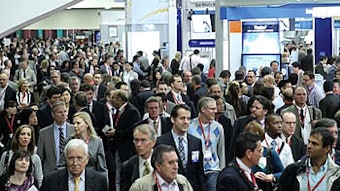United Healthcare Private Payer Advocacy Update
On April 25, 2012, AAO-HNS representatives, including physician and audiology volunteers and staff, conducted a conference call with UnitedHealthcare (UHC) and hi HealthInnovations (HHI) executives as a follow-up to our January in-person meeting and February 21 letter regarding the direct-to-consumer hearing aid program (see the Private Payer website for more: www.entnet.org/Practice/News-and-Updates-from-Private-Payers.cfm. A day earlier, the Academy’s government affairs team spoke with HHI’s legal counsel regarding potential regulatory and statutory issues with the program. The AAO-HNS and numerous other hearing health organizations have expressed serious concerns regarding the company’s online hearing test. During the call, HHI confirmed it had removed the self-rendered online hearing test from the company’s website. However, HHI continues to distribute air conduction tests to providers. HHI has not made any changes to its program based on our feedback, so the Academy believes it is unlikely anything will change quickly. As a result, we made our position clear in our discussion with UHC and HHI that while we are supportive of providing patients access to affordable hearing aids, we do not believe the program represents safe and high quality care for patients. AAO-HNS staff also had a conference call on April 26 with counterparts at the American Academy of Audiology (AAA), the American Speech-Language Hearing Association (ASHA), the Academy of Doctors of Audiology (ADA), and the International Hearing Society (IHS) during which each organization discussed its recent interactions with UHC on this issue. On May 15, the Academy signed on to a letter urging state health departments to advise consumers experiencing hearing loss to seek a comprehensive hearing evaluation by a licensed hearing professional prior to purchasing hearing aids over-the-counter or through the Internet. The letter additionally urges each department of health to notify consumers of the importance of seeing a physician for hearing loss and that failure to do so skirts state and federal regulations and could potentially be harmful. The letter, which was signed by numerous other organizations, including the ADA, AAA, ASHA, and IHS, was sent to the departments of health in all 50 states and six unincorporated U.S. territories. The goal of the effort was for all states to issue a statement similar to the Minnesota Department of Health’s as part of May’s Better Hearing and Speech month. The statements were to stress the importance of seeing a hearing healthcare professional for hearing loss. To view the Minnesota Department of Health’s news release, view its website at www.health.state.mn.us/news/pressrel/2011/hearing102611.html. In addition, on June 25, the Academy communicated our concerns in a letter to the U.S. Food and Drug Administration (FDA), in an attempt to warn consumers at the federal level of risks associated with direct-to-consumer hearing aid programs. Stay tuned to the Academy website for further updates. If you or any of your patients are experiencing issues with UHC’s hearing aids or air conduction hearing kits, email the Academy’s Health Policy team at healthpolicy@entnet.org. Advocacy-Effort TimelineOctober 3, 2011—Academy is alerted of hi HealthInnovations’ new hearing aid program. October 24, 2011—Academy comments about the program in American Medical News. November 2, 2011—Comment letter sent to UHC followed by an immediate response from UHC to arrange a conference call. November 28, 2011—Several members from the Academy’s physician payment policy group (3P), Board of Governors chair, and staff conduct a brief conference call with UHC. All parties agree a face-to-face meeting is necessary. December 5, 2011—Academy follows up with UHC, sending a summary of the conference call and suggesting potential dates for a meeting. January 30, 2012—Academy leadership, physician and audiologist volunteers, and staff meet with UHC. February 9, 2012—Academy signs on to a joint statement emphasizing patient safety with four other associations. February 21, 2012—Academy follows up with a letter to UHC reaffirming Academy requests made during the January 30 meeting. April 24, 2012—Government Affairs staff speak with UHC counsel to discuss regulatory and statutory issues. April 25, 2012—Academy leadership, physician and audiologist volunteers, and staff participate in a conference call with UHC as a follow-up to the February 21 letter. April 26, 2012—Academy staff participates in conference call with four other organizations concerned with UHC’s hearing aid program. May 15, 2012—Academy signs on to letter urging state health departments in all 50 states and six unincorporated U.S. territories to warn consumers about potential health risks of UHC hearing aid [36.1] programs. June 25, 2012—Academy sends a letter to the FDA communicating concerns about consumer safety of DTC hearing aid programs.
On April 25, 2012, AAO-HNS representatives, including physician and audiology volunteers and staff, conducted a conference call with UnitedHealthcare (UHC) and hi HealthInnovations (HHI) executives as a follow-up to our January in-person meeting and February 21 letter regarding the direct-to-consumer hearing aid program (see the Private Payer website for more: www.entnet.org/Practice/News-and-Updates-from-Private-Payers.cfm. A day earlier, the Academy’s government affairs team spoke with HHI’s legal counsel regarding potential regulatory and statutory issues with the program. The AAO-HNS and numerous other hearing health organizations have expressed serious concerns regarding the company’s online hearing test. During the call, HHI confirmed it had removed the self-rendered online hearing test from the company’s website. However, HHI continues to distribute air conduction tests to providers. HHI has not made any changes to its program based on our feedback, so the Academy believes it is unlikely anything will change quickly. As a result, we made our position clear in our discussion with UHC and HHI that while we are supportive of providing patients access to affordable hearing aids, we do not believe the program represents safe and high quality care for patients. AAO-HNS staff also had a conference call on April 26 with counterparts at the American Academy of Audiology (AAA), the American Speech-Language Hearing Association (ASHA), the Academy of Doctors of Audiology (ADA), and the International Hearing Society (IHS) during which each organization discussed its recent interactions with UHC on this issue.
On May 15, the Academy signed on to a letter urging state health departments to advise consumers experiencing hearing loss to seek a comprehensive hearing evaluation by a licensed hearing professional prior to purchasing hearing aids over-the-counter or through the Internet. The letter additionally urges each department of health to notify consumers of the importance of seeing a physician for hearing loss and that failure to do so skirts state and federal regulations and could potentially be harmful. The letter, which was signed by numerous other organizations, including the ADA, AAA, ASHA, and IHS, was sent to the departments of health in all 50 states and six unincorporated U.S. territories. The goal of the effort was for all states to issue a statement similar to the Minnesota Department of Health’s as part of May’s Better Hearing and Speech month. The statements were to stress the importance of seeing a hearing healthcare professional for hearing loss. To view the Minnesota Department of Health’s news release, view its website at www.health.state.mn.us/news/pressrel/2011/hearing102611.html.
In addition, on June 25, the Academy communicated our concerns in a letter to the U.S. Food and Drug Administration (FDA), in an attempt to warn consumers at the federal level of risks associated with direct-to-consumer hearing aid programs. Stay tuned to the Academy website for further updates.
If you or any of your patients are experiencing issues with UHC’s hearing aids or air conduction hearing kits, email the Academy’s Health Policy team at healthpolicy@entnet.org.
October 24, 2011—Academy comments about the program in American Medical News.
November 2, 2011—Comment letter sent to UHC followed by an immediate response from UHC to arrange a conference call.
November 28, 2011—Several members from the Academy’s physician payment policy group (3P), Board of Governors chair, and staff conduct a brief conference call with UHC. All parties agree a face-to-face meeting is necessary.
December 5, 2011—Academy follows up with UHC, sending a summary of the conference call and suggesting potential dates for a meeting.
January 30, 2012—Academy leadership, physician and audiologist volunteers, and staff meet with UHC.
February 9, 2012—Academy signs on to a joint statement emphasizing patient safety with four other associations.
February 21, 2012—Academy follows up with a letter to UHC reaffirming Academy requests made during the January 30 meeting.
April 24, 2012—Government Affairs staff speak with UHC counsel to discuss regulatory and statutory issues.
April 25, 2012—Academy leadership, physician and audiologist volunteers, and staff participate in a conference call with UHC as a follow-up to the February 21 letter.
April 26, 2012—Academy staff participates in conference call with four other organizations concerned with UHC’s hearing aid program.
May 15, 2012—Academy signs on to letter urging state health departments in all 50 states and six unincorporated U.S. territories to warn consumers about potential health risks of UHC hearing aid [36.1] programs.
June 25, 2012—Academy sends a letter to the FDA communicating concerns about consumer safety of DTC hearing aid programs.
